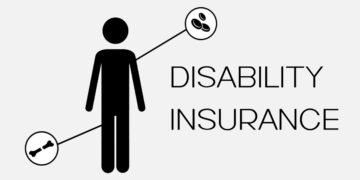Forex represents one of the most lucrative markets to invest in these days. To start trading in Forex, you must first choose an intermediary with whom you can confidently open a specific account. Take care. Above all, this first step should not be left to chance or be guided by a service proposal that you have not requested yourself. In recent years, many scammers have robbed naive individuals, promising them easy and fabulous gains by betting on Forex. Stick to reliable brokers such as CTL Markets. Here, on the MyForexNews is the excellent CTL Markets Review.
Financial institutions and regulatory bodies, which have been fighting against this scourge for several years, maintain a blocklist on their website of players who offer without authorization to invest in Forex.
We recommend that you familiarize yourself with this list. But this first criterion, although necessary, is not enough to protect you from unpleasant surprises. Go simple. If you already have securities account with a regulated online broker, ask your intermediary if he has a Forex trading offer.
For practical reasons, prefer brokers who have opened offices in your country and are regulated and supervised by the financial authorities. If you later wish to contest the execution of an order, it will be easier for you and, above all, less costly to refer the matter to the authorities in your jurisdiction rather than to a foreign regulator.
Leverage effect

To invest in Forex, in other words, to buy or sell euros, dollars, or yen, for example, online brokers offer two types of financial instruments linked to margin accounts: CFDs and forward exchange contracts. A unique feature of these margin accounts is that you can invest on the market if you wish, an amount higher than your initial deposit because your broker finances the operation. This is called leverage.
Let’s take an example: you deposit 10,000 euros in your account. With this sum, you can open a position for a maximum total amount of 300,000 euros on a major currency pair such as the euro/dollar. In this specific case, the leverage is 30. To start trading, we recommend that you test your reactions using low leverage, around 2 or 3 times your initial deposit. As the primary currency market is not very volatile, your gains will be limited, but so will your losses. By adopting this cautious attitude, you will stay active in Forex longer and improve your practice.
Free training
All seasoned traders are unanimous: to invest in the markets without losing your money; you have to put in place a trading plan. In other words, set specific objectives before placing an order on the market. This is the only way to carry the gains and cut the losses. Good internet brokers provide free training to help their clients improve their performance.
Through free training, you will learn how to use the various tools (economic calendars, trailing orders, chart analysis, etc.) made available to you on the platforms to establish an effective trading plan.
Customer service

Nobody enjoys contacting customer service for assistance with an issue, but once you do, it’s wonderful to be able to reach somebody immediately. Most online brokers provide support for the bulk of the day through phone or internet chat, while others are more difficult to achieve. Some of the younger brokerage firms have gotten customer support concerns, so when selecting a broker, make sure you know how to seek support with your account.
Reliability
There are numerous brokers to choose from. Some have been around for quite a long time, while others are simply getting everything rolling. That doesn’t mean these beginners are questionable – assuming they’re overseeing exchanges for other people, they’re constrained by the Securities and Exchange Commission and have a place with a self-administrative association. However, it suggests they haven’t been tried in various financial exchange circumstances.
Certain brokers have experienced issues with their websites shutting down during volatile markets. This is never a nice thing, but it’s particularly aggravating during a market downturn. Check to determine if any brokers you’re contemplating have a record of outages during peak trading periods. This could be a warning sign if you plan on being an active investor.
Commissions

Individual stocks, options, mutual funds, exchange-traded funds, and bonds are among the investment alternatives offered by most brokers. Others will also provide accessibility to cryptocurrency exchanges, futures trading, and currency markets.
The investments supplied by the brokerage will determine two things: if your investment objectives are met and how much compensation you will pay. Pay heed to the commissions that come with your chosen investments:
- Individual stocks: Certain brokers still impose a commission per deal or share when buying and selling equities. A significant percent of web brokers, on the other hand, no longer charge commissions.
- Options: Options trades typically include a stock trading commission (if the broker charges one), as well as a per-contract cost, which typically ranges from 15 cents to $1.50.
- Mutual funds: When buying mutual funds, some brokers impose a fee. By choosing a broker that offers no-transaction-fee mutual funds, you can reduce or eliminate mutual fund transaction expenses.
- ETFs: ETFs are acquired for a share price and trade like stocks; they are usually susceptible to stock transaction fees if the broker levies them. Most brokers, on the other hand, provide a listing of ETFs that are free of commissions. You should seek one of these firms to invest in ETFs.
- Cryptocurrencies: A growing number of brokerages are beginning to access a few cryptocurrencies, but make sure you’re aware of the dangers and charges that come with these trades.
- Bonds: Using no-transaction-fee mutual funds and commission-free ETFs, you can buy bonds for nothing. Individual bonds may be purchased for a cost, with an upper and lower limit amount.
Bottom Line
Selecting an internet broker is an essential initial step in the investment process. Before deciding, make sure you’ve done your homework and know what you’re after for in a broker. You’ll likely pay substantially less in fees with an internet broker than you would with a typical full-service broker.












